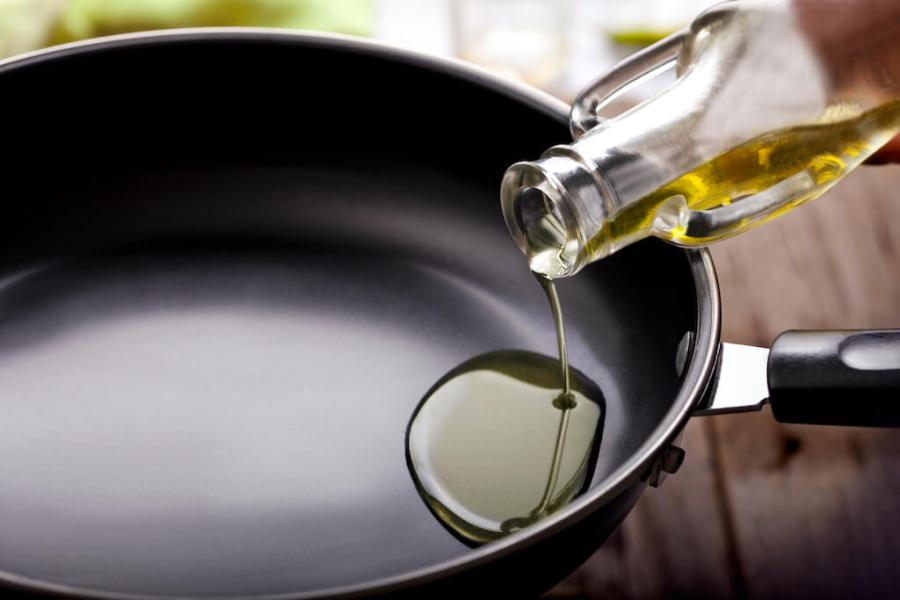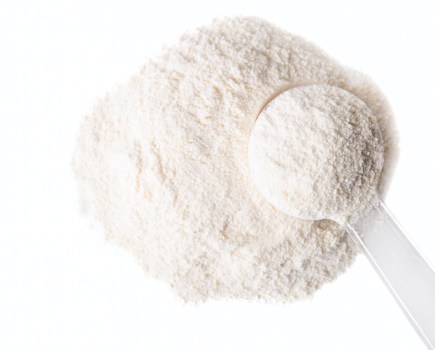OIL
|
PROCESS
|
SMOKE POINT
|
PROS
|
CONS
|
Vegetable oil
|
The most common oil used in the UK is refined rapeseed but can also include others such as corn, soybean, safflower, palm, and sunflower oils, or a blend of several. |
238°C
|
- Mostly unsaturated fats.
- Cheap.
- High smoke point, so suitable for deep frying.
|
- High in omega-6 fatty acids (although essential, most people in the West have too much).
- Highly refined: production involves high heat and exposure to chemicals which markedly decreases nutrients.
|
Sunflower oil
|
Most large manufacturers use high heat and solvents to extract the oil from sunflower seeds. |
230°C
|
- Mostly unsaturated fats.
- Cheap.
- High smoke point so suitable for deep frying.
|
- High in omega-6 fatty acids.
- Aldehydes produced when heated repeatedly – as is often the case in commercial deep fat fryers – which are toxic.
|
Cold-pressed rapeseed oil
|
Rapeseed is simply pressed at low temperatures and filtered. |
220°C
|
- Source of omega-3 fats.
- Even lower in saturated fat than olive oil.
- Contains vitamin E and naturally occurring plant sterols.
- High smoke point, so suitable for most domestic cooking methods.
|
- Expensive.
- Some love the nutty favour but it’s not to everyone’s taste.
|
Extra-virgin olive oil (EVOO)
|
The oil is extracted by grinding and pressing olives; no other chemicals, heat, or processes are used. |
195°C
|
- Taste.
- High in heart-healthy monounsaturated fat.
- Contains polyphenols and antioxidants.
|
- Expensive.
- Easy to over-consume in dressings, sauces, etc.
|
Refined olive oil
|
Refining process will often include the presence of heat or chemicals.
|
240°C
|
- Higher smoke point than EVOO.
- Longer shelf life.
- Cheaper.
|
- Very little flavour.
- Refining process strips most nutrients found in EVOO.
|
Coconut oil
|
Coconut flesh is ground and pressed, then oil separated off. |
175°C
|
- Adds authentic flavour for South Asian cooking.
- Solid at room temperature, which is a useful property in some recipes.
|
- Very high in saturated fat (even higher than lard).
- Studies show it raises LDL ‘bad’ cholesterol.
- High environmental impact.
|







